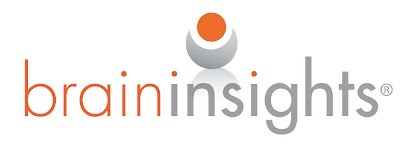"Children are made readers on the laps of their parents."For the past 13 years the National Education Association (NEA) celebrates and honors Dr. Seuss’ birthday on March 2nd with Read Across America. The goal of this day is to have every child in the U.S. reading in the company of a caring adult.
~ Emilie Buchwald
This is such a great goal. Reading has so many benefits for a developing brain. When a child is read to cells in the brain are triggered within seconds. Some existing connections in the brain are strengthened while new connections are formed. This helps create a more defined and complex wiring of the brain that will benefit a child for the rest of their life. Reading to a child is so important that the American Academy of Pediatrics now recommends that Pediatricians prescribe reading activities to parents during their well child visits. Children who are read to at home have a higher success rate in school and the National Commission on Reading found that reading aloud to a child is the single most important intervention for developing literacy skills.
Literacy skills development isn’t the only brain benefit that results from reading to a child. Even reading to an infant is extremely valuable. When reading a book, the child has the opportunity for visual stimulation, and hearing words. A child needs to experience direct language. Television and DVD’s do not provide the interactive language the brain needs. The time spent cuddling while reading is also very important. This closeness helps the brain make valuable connections contributing to healthy emotional development. Young babies find the sound of the voice reassuring and calming.
Books also provide a way for children to gain new perspectives and learn about people, places and things outside of their immediate environment. Reading with children also presents the possibility for children to open up about feelings or things that are bothering them in a comfortable way.
Unfortunately only 53% to 58% of children ages 3 to 5 are read to daily. Wouldn’t it be wonderful if 100% of children were read to daily? “Read Across America” is a great effort toward this goal. Starting this weekend there are reading events across the country. I invite you to share this information with everyone. Post it on your social networking sites and tell educators or people that have young children.
- Oh The Places You Will Go Reading- On Saturday February 27, 2010, Target is sponsoring a free reading of Oh The Places You Will Go, along with Dr. Seuss inspired games, activities and giveaways. To find more information or to find a location near you visit click here.
- Cat-a-Van – NEA is sponsoring a van touring the country to bring special events to cities across the US. For more information visit nea.org/readacross.
Brain Insights For Read Across America
Reading Rockets Tips for Parents of Preschoolers
Dr. Seuss Activities
If you know of other events or reading activities please share your comments below or email me. It will be wonderful to hear the ideas you have to share. So snuggle up with a favorite book or a fun new one and enjoy. I have a new one I cannot wait to get to myself. Happy Reading!














